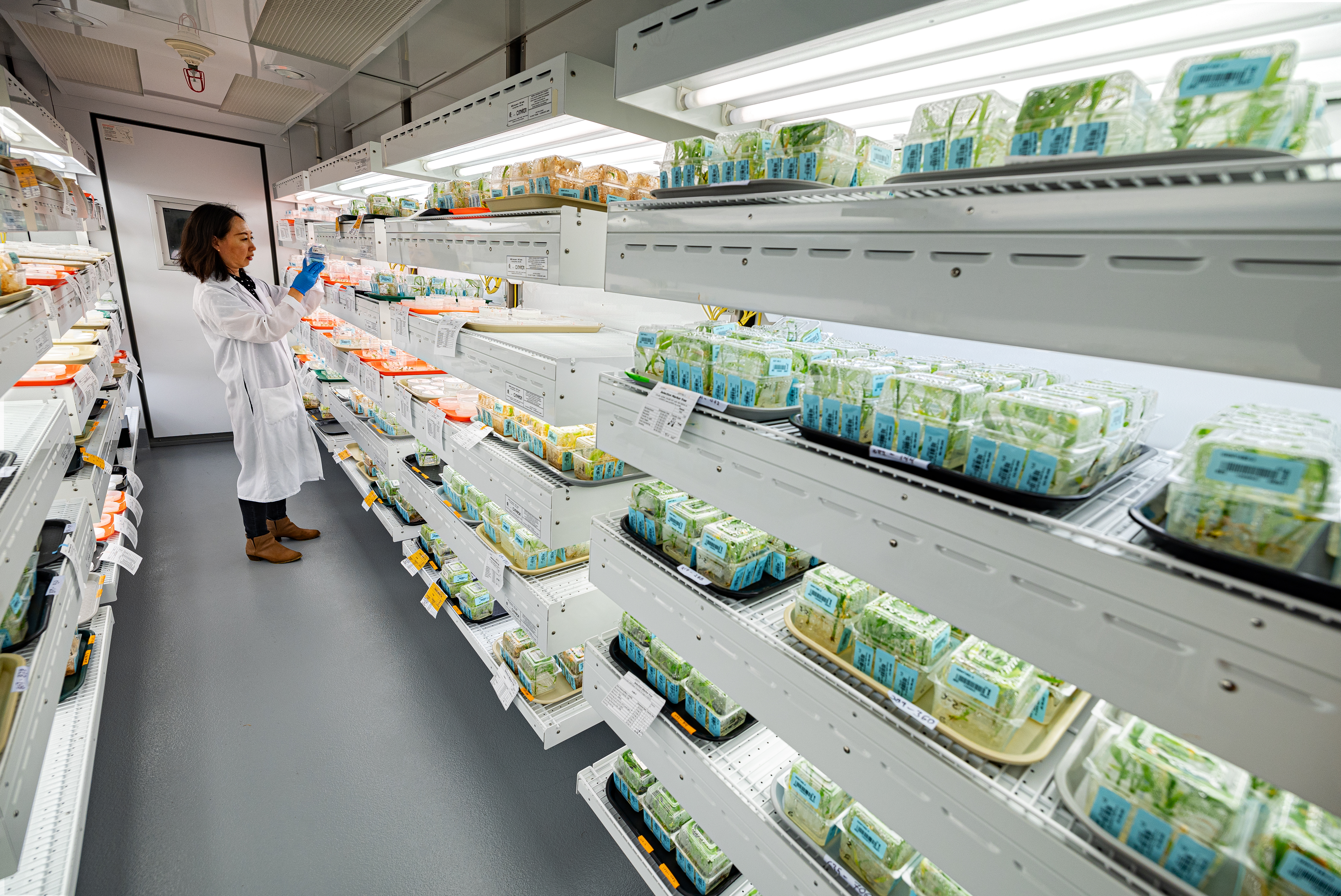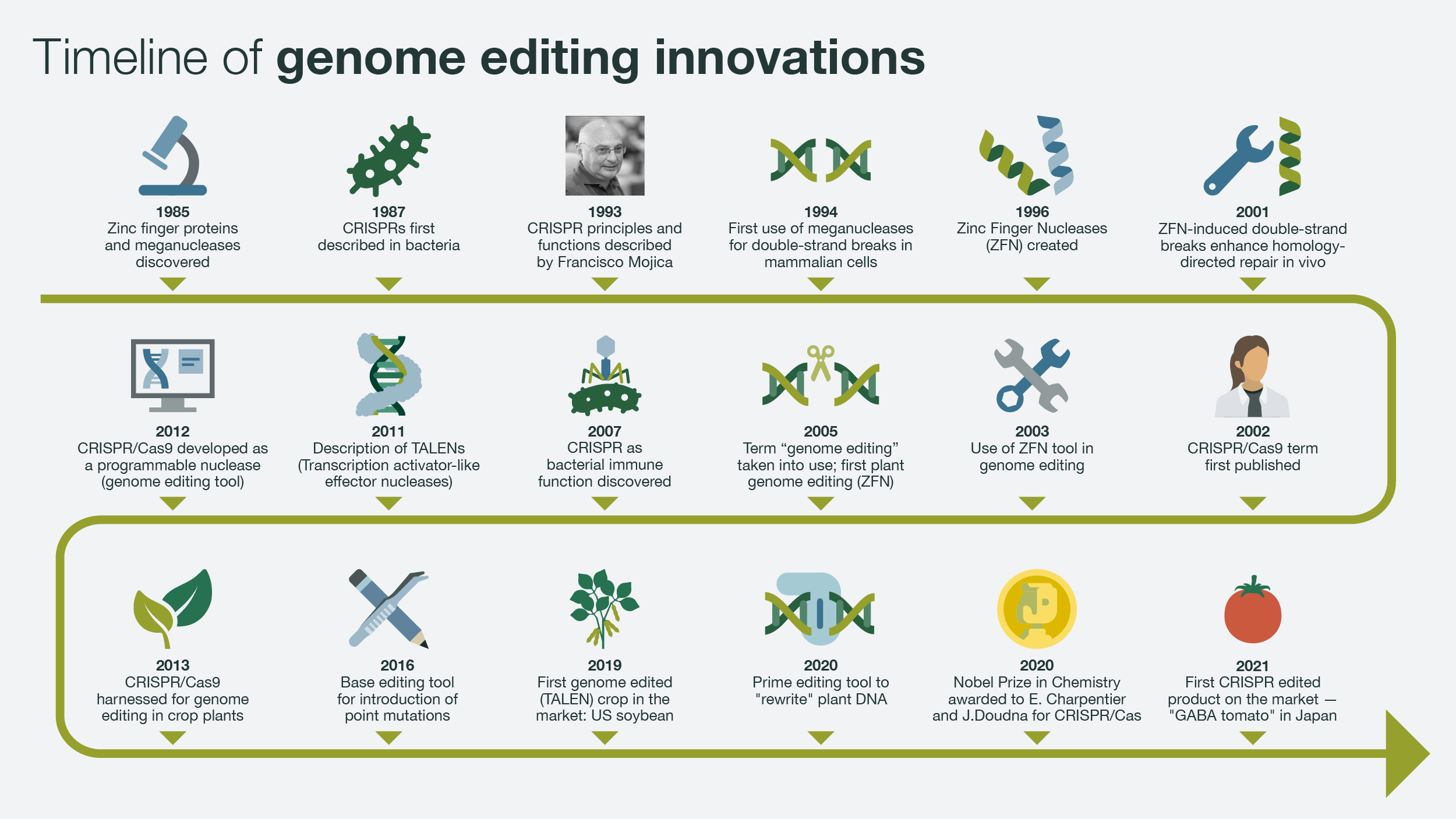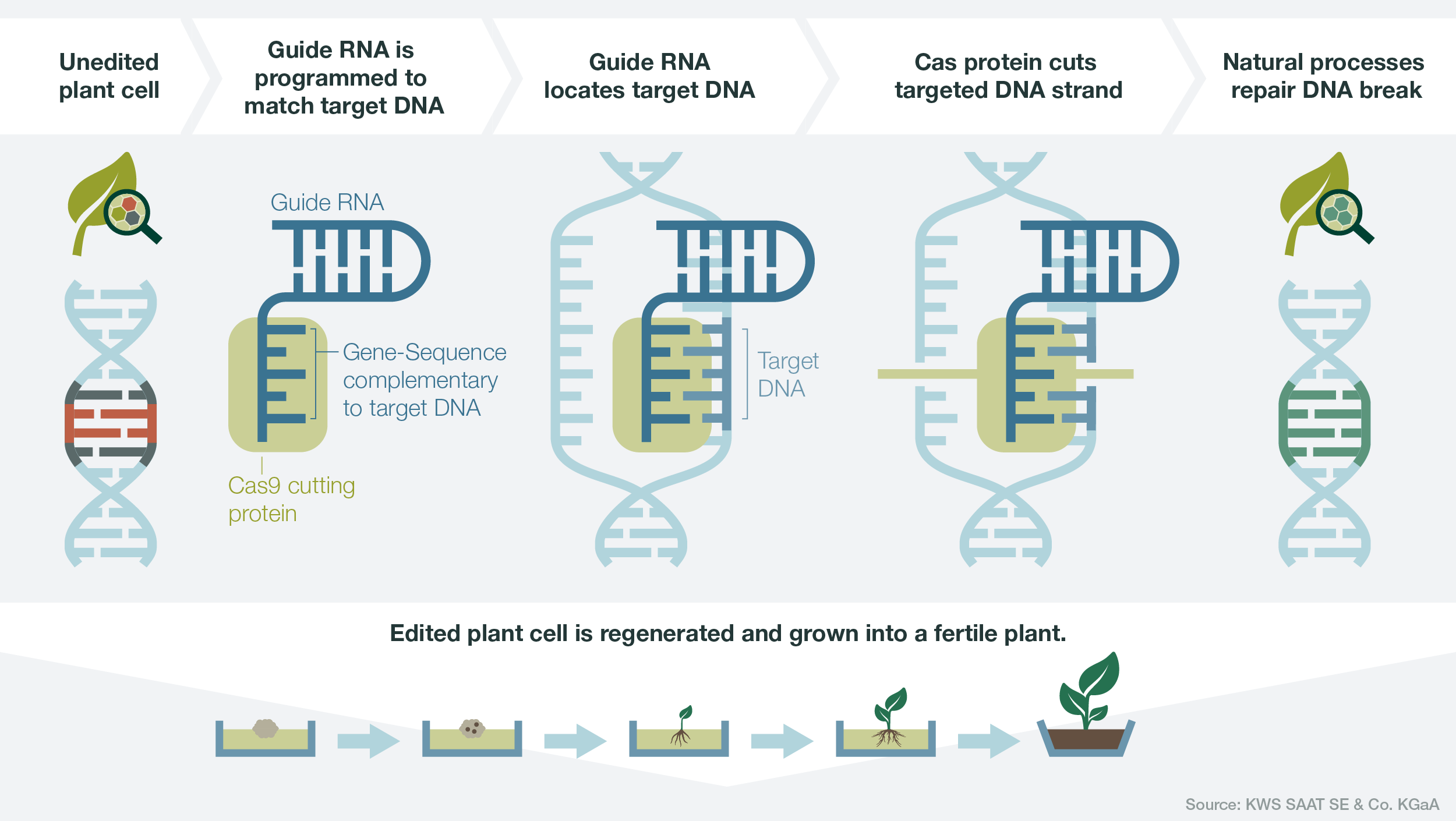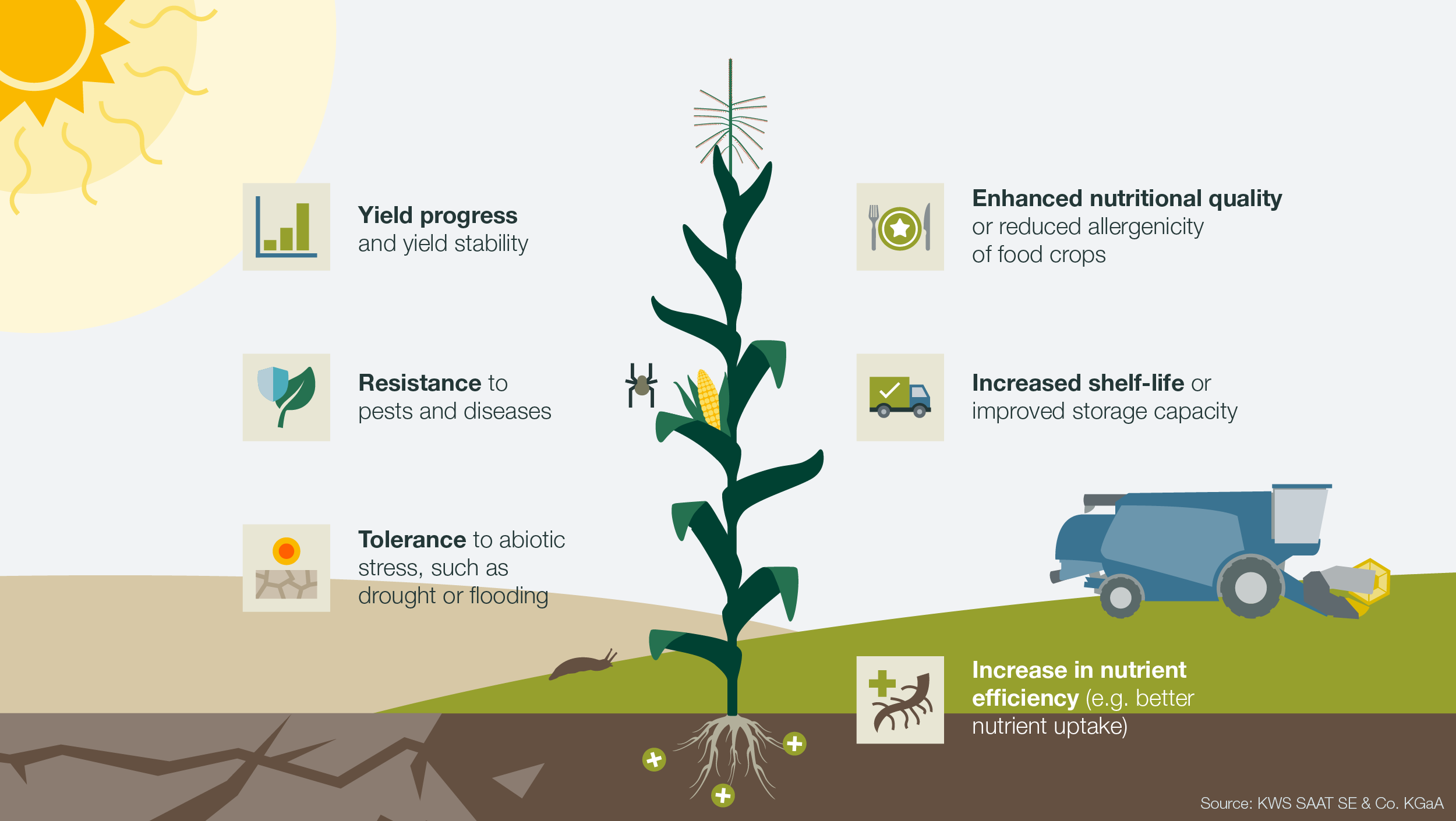Genome Editing - a precise and fast new breeding method
Innovations in plant breeding
Genome editing can be used to develop crops with beneficial traits:
Genome editing at KWS
At KWS, sustainable agriculture has been the main focus in the application of genome editing methods for our key crops since 2015. Due to the current EU regulatory framework, which effectively bans the use of genome editing in plant breeding, our current main focus is on research. We use genome editing for example in gene identification and validation.
Our future focus in genome editing is in the development of such traits as resistance to fungi, viruses and insects, yield stability, and silage quality.
For example, KWS is one of the nearly 60 companies collaborating in the PILTON research project, managed by the German Federation of Plant Innovation e.V. (GFPi). The aim of this project is to develop multiple fungal tolerances in wheat, and to demonstrate the potential of genome editing in reducing the need for plant protection products.

„We are committed to tackling agricultural challenges through innovative approaches. With the speed and precision of genome editing, we empower the development of climate-resilient crops, providing solutions for sustainable agriculture.“
Further reading
| New Breeding Methods: More than just a "test-tube scenario" |
Download 2022 (PDF | 144 kB) Download 2023 (PDF | 4 MB) |
| EU-SAGE interactive online database of genome-edited crops | Read more |




